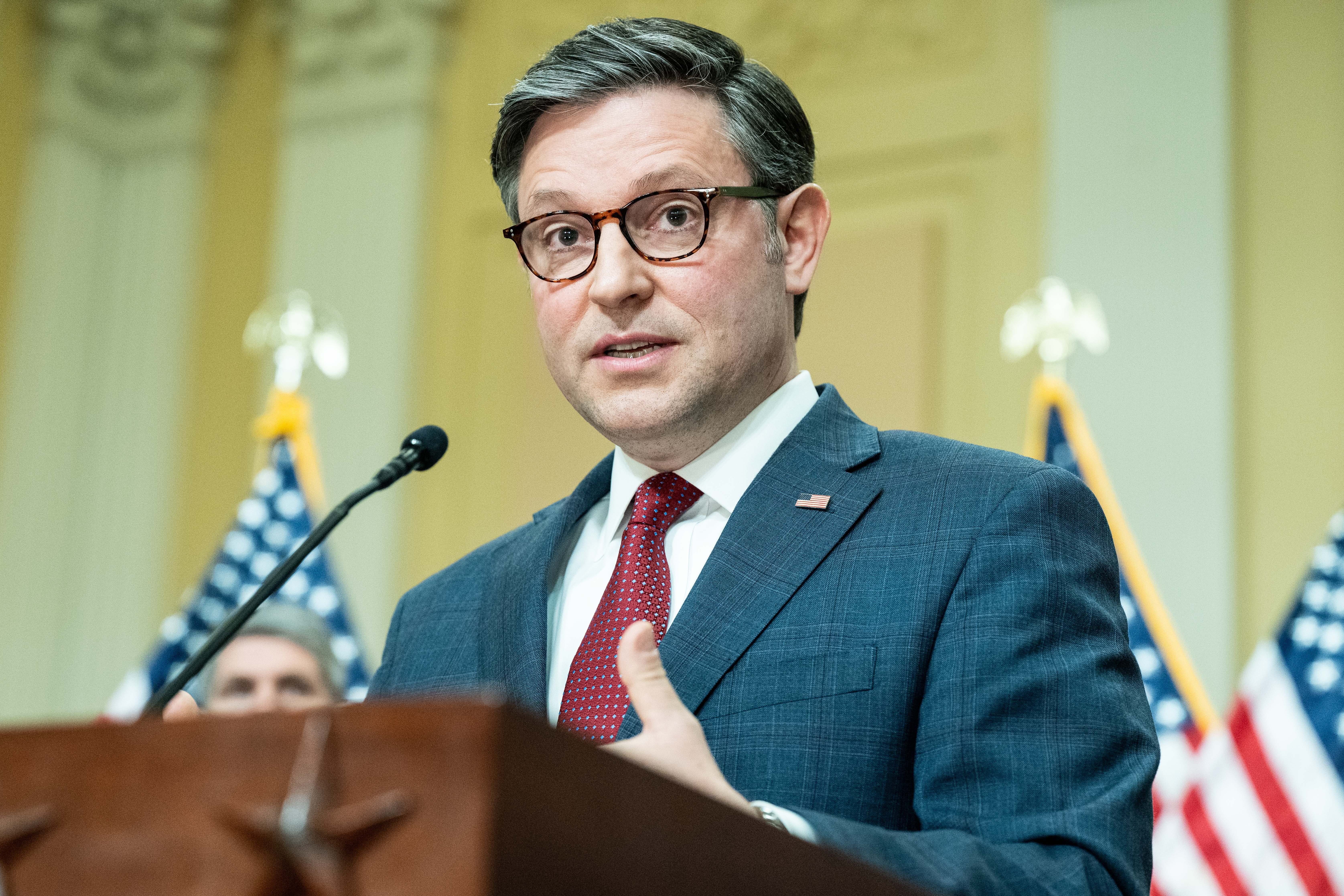House Speaker Mike Johnson (R-LA) speaking at a press conference at the U.S. Capitol.
After stalling a vote for months, House Speaker Mike Johnson hinted Sunday that he may introduce a new Ukraine aid package when Congress returns next week.
The new package would be structured as a loan rather than a grant, an idea former President Donald Trump has supported in the past. Johnson needs Trump’s approval to keep the MAGA contingency of the House on board.
He also proposed funding the bill using the $300 billion of Russian assets frozen in the West. However, most of the assets are tied up in Europe, where leaders are concerned the move would shock the markets.
Johnson is considering making the bill conditional on President Joe Biden redacting an executive order pausing new liquified natural gas exports. Johnson justified linking LNG to Ukraine aid as a way of defunding Russia, which makes big bucks selling energy.
Although these additions are meant to placate GOP hardliners, calling for a vote could still cost him his gavel. Marjorie Taylor Greene filed a motion to remove him in March, but she stopped short of calling it for a floor vote. Some Democrats have indicated they would support Johnson if there is a vote to remove him.
Meanwhile, as Congress approaches its sixth month of squabbling, President Volodymyr Zelensky warned Congress on Thursday that if US aid doesn’t come soon, Ukraine “will go back, retreat, step by step.”
